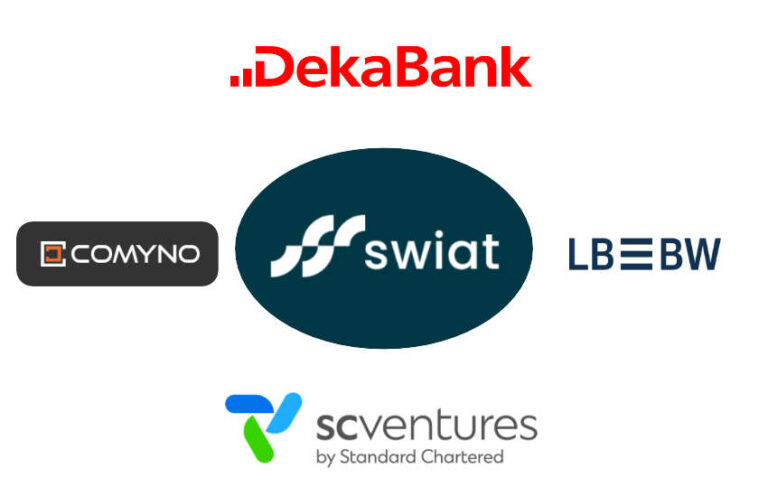
Source: www.ledgerinsights.com
Today, SWIAT, the blockchain tokenization network founded by Germany’s DekaBank, announced three new investors, SC Ventures (Standard Chartered), one of Germany’s largest banks LBBW, and software company Comyno. The involvement of Standard Chartered and LBBW is not a surprise, as DekaBank mentioned their interest when the SWIAT platform was launched over a year ago.
When SWIAT was first launched, it described itself as the SWIFT for digital assets, targeting regulated institutions. The name stands for Secure Worldwide Interbank Asset Transfer. He wants to encourage cooperation and collaboration between participants in the financial industry. The vision is for regulated entities to build their own use cases but maintain interoperability with others on the SWIAT network.
“SWIAT is a solution for the financial sector that is being built at the institutional level by banks, for banks,” said Alex Manson, director of SC Ventures. “Not only does it provide a platform to save costs and achieve economies of scale, but it also enables better risk management and audit trails through the use of state-of-the-art technology. As a leading investor, SC Ventures is convinced that the current use case is the precursor to many others, with most of the settlement industry gradually moving towards blockchain protocols.”
SWIAT’s first applications were securities lending and a green bond registry. Late last year, SWIAT introduced Cycros, a proposed trigger payment solution to allow conventional central bank money to be used for delivery-versus-payment (DvP) settlement of tokenized securities. This is well-timed with the EU DLT Pilot Scheme coming into force in March this year.
There are now several initiatives exploring similar objectives to SWIAT. The Regulated Liability Network (RLN) is starting with a focus on digital currency, but plans to expand to other digital assets. Similarly, Singapore’s Partior, where Standard Chartered is also a sponsor along with JP Morgan and DBS Bank, focuses first on interbank payments but describes itself as a “value exchange” platform.
SWIFT is looking to enable both digital currency interoperability and tokenized asset interoperability. It has multiple initiatives, including an institutional one with Clearstream, Northern Trust and SETL and another exploring public blockchain interoperability.
The reality is that there will be multiple initiatives and many of the institutions will join more than one. So SWIFT has its own projects, but it’s also involved in RLN, and Standard Chartered is involved in SWIAT and Partior.
SWIAT’s solution blockchain is based on enterprise Ethereum.
Read More at www.ledgerinsights.com